

LAS FACULTY RESEARCH BULLETIN

Welcome to the Fall 2025 edition of the LAS Faculty Research Bulletin

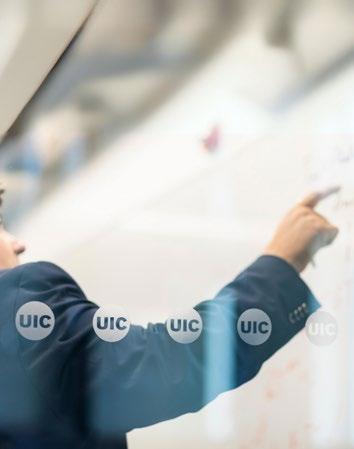
Grants & Fellowships
Advancing Faculty Research Across LAS
Honors & Awards
Celebrating Excellence Across LAS



Internal Honors & Awards
Recognizing the outstanding contributions of our faculty across the college


DEAN, COLLEGE OF LIBERAL ARTS AND SCIENCES
Lisa A. Freeman
MANAGING EDITOR
Vicki Bolf
LAS Faculty Research in UIC Today
Showcasing groundbreaking scholarship and innovation from the College of LAS
DESIGNER
Myrna Romero
PHOTOGRAPHER
Katie Klema
CONTRIBUTING WRITERS AND EDITORS
Anna Brailovsky
Luke Hanley
Jane Rhodes
Anne Eaton
Beth Allen
CONTACT US
If you have news to share, please get in touch with Jon Cecero, Director of Marketing and Communications at jcecero@uic.edu


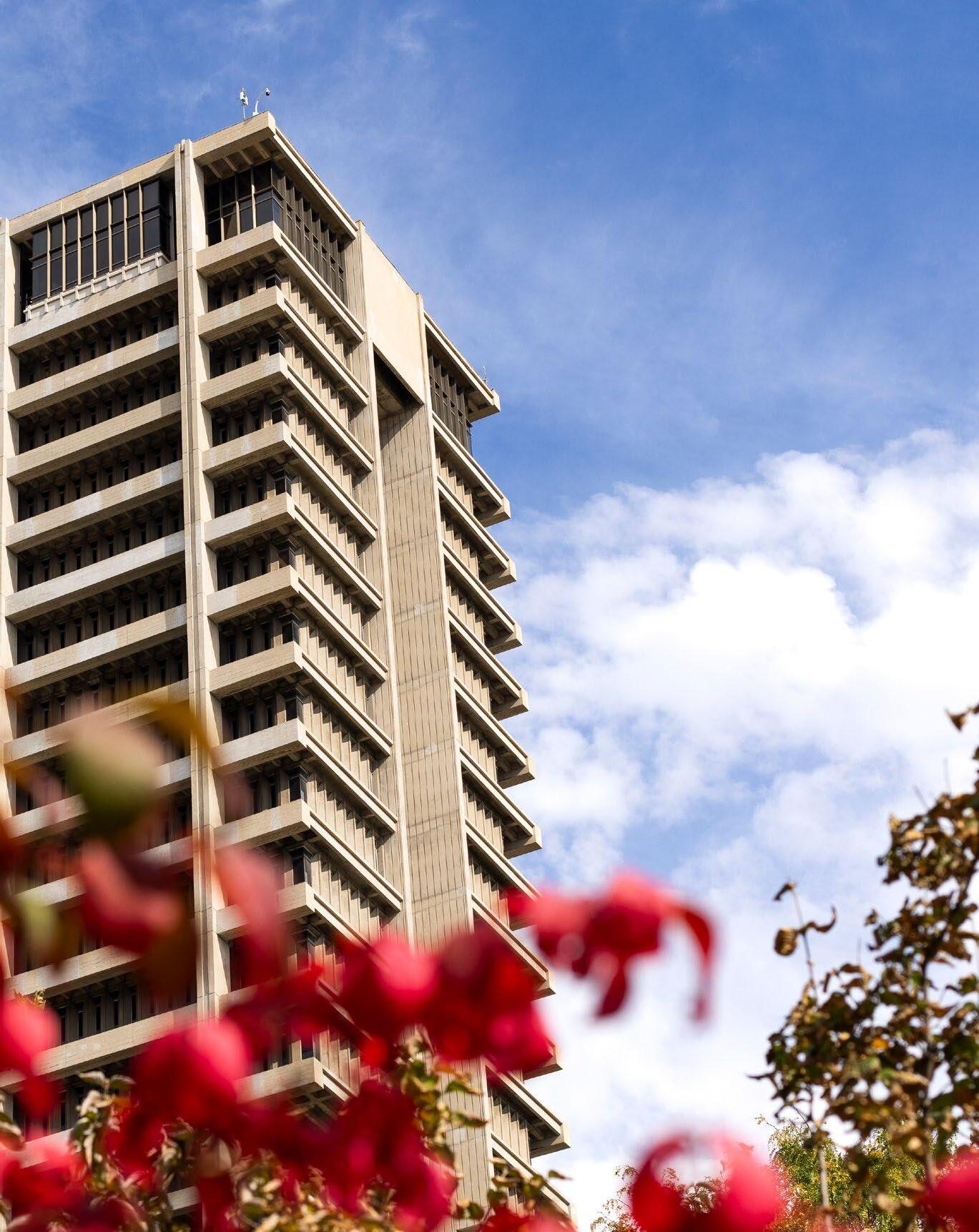
MESSAGE FROM THE DEAN
Welcome to the Fall 2025 edition of the LAS Faculty Research Bulletin.

One of the best parts of being the Dean is getting a true bird’s-eye view of all of the amazing initiatives, studies, and investigations undertaken every day by the faculty of this College. It is heartening, in the midst of continuing uncertainty regarding federal research funding and guidelines, to see LAS faculty continue to pursue their important work. That is why I implemented these bulletins: to help publicize, even within our own ranks, the successes that our faculty continue to achieve.
In the pages that follow, you’ll see an impressive array of grants and awards for senior scholars as well as those early in their careers, across the disciplines. This is the backbone of the liberal arts and sciences, and what makes the education we offer to our students so extraordinary: the chance to learn from experts across fields, to understand molecules, 19th century political theory, and how identity shapes community involvement, all within the same degree program. In LAS, diversity of thought, viewpoint, and approach is fundamental to everything we do: it is what makes the education we offer distinctive. You will see that diversity reflected in the many awards below.

I would also like to take a moment to highlight the powerhouse showing by LAS faculty across the internal fellowship and award landscape at UIC. LAS faculty have won eight fellowships at the Institute for Research on Race and Public Policy, six at the Institute for the Humanities, and five awards from upper administration and student government.
Our two LAS Distinguished Professors this year are Daniel Borzutzky of Latin American and Latino Studies and English and Jennifer Brier of History and Gender and Women’s Studies. Professor Borzutzky’s lecture and celebration took place on October 21. Professor Brier’s lecture and reception will be on March 4 at 3:30 pm in the Cardinal Room. Please mark your calendars and plan to join us!
Thank you for being part of our LAS community, and for reading the Faculty Research Bulletin.
Lisa A. Freeman Dean of the College of Liberal Arts and Sciences
HONORS & AWARDS

The 2025 Breakthrough Prize in Fundamental Physics was awarded to Austin Baty, Rick Cavanaugh, Olga Evdokimov, Cecilia Gerber and Corrinne Mills (all faculty in the Department of Physics) along with thousands of other researchers worldwide “for the their work on an experiment using data from the Compact Muon Solenoid (CMS) detector at the Large Hadron Collider.” (See “LAS in UIC Today” on page 25).
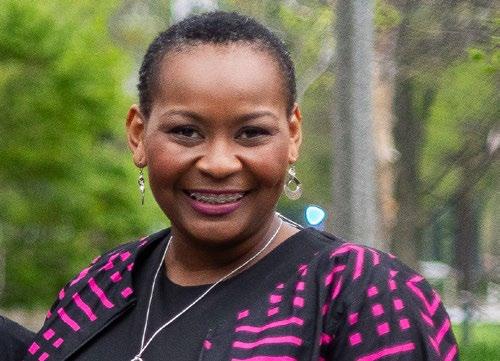
Manoucheka Celeste, Associate Professor, Department of Gender and Women’s Studies was presented with the 2025 Marsha Houston Award from the National Communication Association. This award recognizes Prof. Celeste’s theoretical, methodological and practical commitment to issues of representational visibility, equity, intersectionality, and global justice.
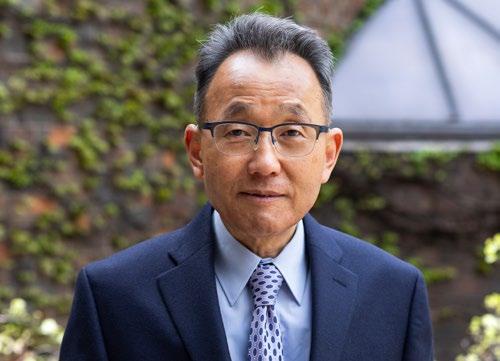
Wonhwa Cho, UIC Distinguished Professor, LAS Science Endowed Chair, and Head of Chemistry— won the 2026 Biophysical Society Award in the Biophysics of Health and Disease, which “honors a BPS member who has made a significant contribution to understanding the fundamental cause or pathogenesis of disease, or to enabling the treatment or prevention.” The awardee also receives a $2,000 prize.

Robin J. Mermelstein, LAS Distinguished Professor of Psychology, is the 2025 co-winner of the Alton Ochsner Award Relating Smoking and Disease. The award is named for Dr. Alton Ochsner, who in 1939 first discovered links between smoking and lung cancer, laying the groundwork for future research in the field. The prestigious award comes with a $15,000 honorarium and a plaque.

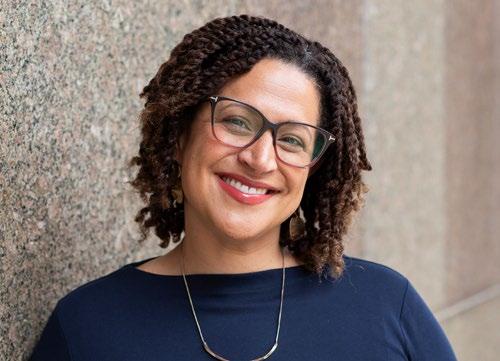
Associate Professor of History Elizabeth ToddBreland’s co-authored memoir of Karen Lewis, IDidn’tComeHeretoLie:MyLifeandEducation, won the inaugural Timuel D. Black, Jr. Award for Civic Engagement from Public Narrative.
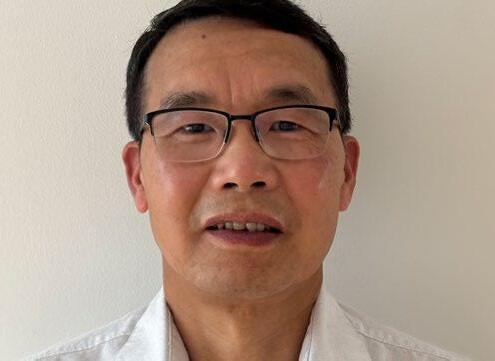
Huan-Xiang Zhou, Professor of Chemistry and Physics and LAS Endowed Chair in the Natural Sciences, was named a 2026 Society Fellow of the Biophysical Society “ for his ground-breaking research integrating theories, computational methods, and experiments for understanding protein-protein association, macromolecular crowding, and biomolecular condensates.”

Maria de los Angeles Torres, LAS Distinguished Professor Emerita of Latin American and Latino Studies, is the PI of the Crossing Latinidades Humanities Research Initiative, which was recognized by Excelencia in Education as a 2025 Example of Excelencia at the graduate level.
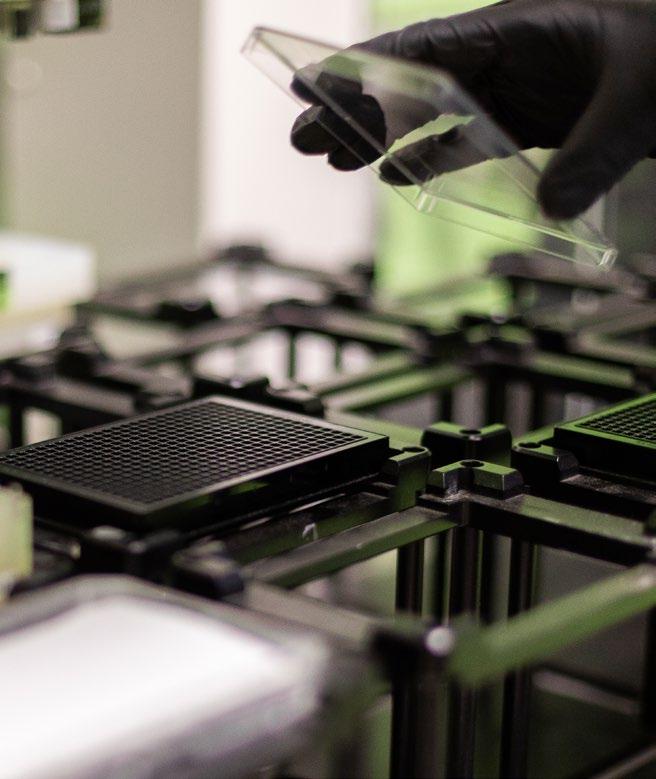
GRANTS & FELLOWSHIPS
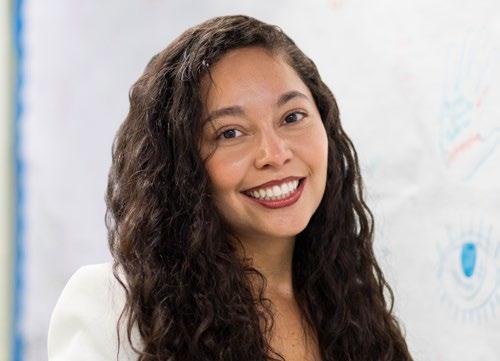
Josefina Bañales, Assistant Professor of Psychology, has been awarded the National Academy of Education/Spencer Foundation Postdoctoral Fellowship in Education Research – a highly competitive $70,000 award that supports exceptional researchers conducting postdoctoral studies relevant to education. Dr. Bañales’ project, “Investigating Latinx Youths’ Anti-Racist Identity and Anti-Racism Action Using a Mixed-Method, YouthEngaged Research Approach,” examines how anti-racist identity manifests and promotes youth involvement in actions that challenge structural racism. Findings will inform the development of out-of-school interventions to promote development of critical consciousness.

Jordi Cabana-Jimenez, Professor of Chemistry, has been awarded $344,454 from the National Science Foundation for the UIC portion of the collaborative project “Discovery of Multivalent Solid Electrolytes via Integrated Computations and Experiments.” Conducted in partnership with the University of Texas at Austin, the research seeks to design materials that would allow charged ions to move through a solid electrolyte medium. Such an innovation would result in a new class of batteries that are safer and store substantially more energy.
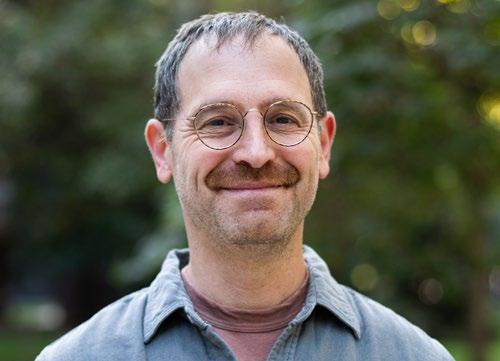
Max Berkelhammer, Professor of Earth and Environmental Sciences, has received $405,502 from the National Science Foundation for the collaborative project “The Contribution of Coastal Systems to the Atmospheric Carbonyl Sulfide Budget Using Tower-Based Fluxes, Isotopic Measurements and Modeling.” Dr. Berkelhammer leads an international team of scientists from UIC, the Hebrew University of Jerusalem in Israel, and the University of Oldenburg in Germany in a coordinated effort to collect data using air-sea interaction towers on the US Atlantic seaboard and in the Bering Sea. The work of the international partners is supported separately by the U.S.-Israel Binational Science Foundation (BSF) and the Deutsche Forschungs-gemeinschaft (DFG; the German Research Foundation).
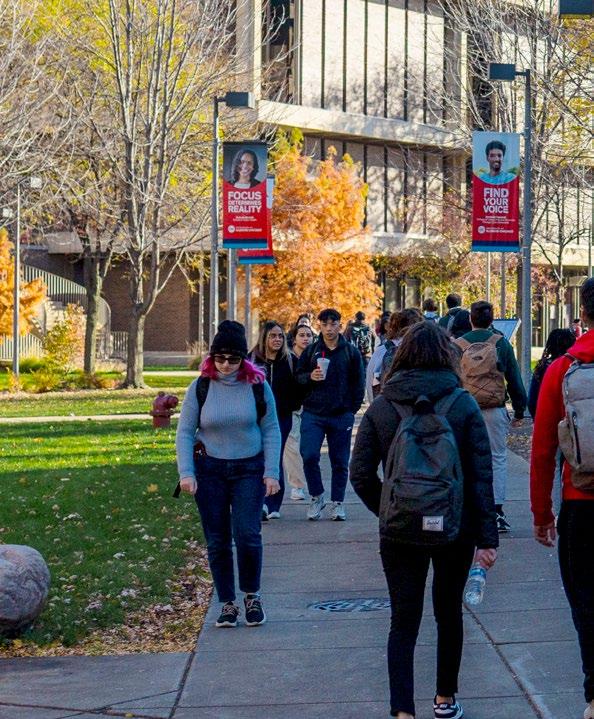
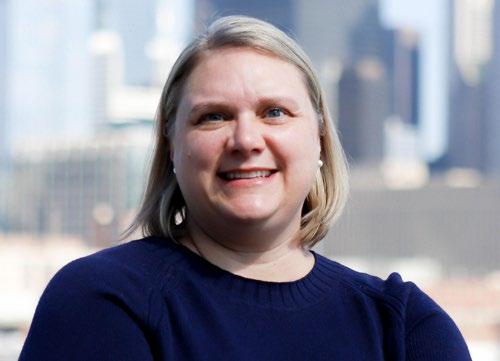
Stephanie Cologna, Professor of Chemistry and Associate Vice Chancellor for Research, has secured $1,481,999 from the National Institutes of Health High-End Instrumentation Grant Program to purchase a dual source ion mobility hybrid mass spectrometry system for biomedical research that will be housed in the Department of Chemistry Instrumentation Core. This is the first high-resolution mass spectrometer in the Core and will enable new discoveries in proteomics, lipidomics, and metabolomics. Dr. Cologna has also received two new awards for her on going work to understand Niemann-Pick disease type C, a fatal, childhoodonset neurodegenerative disorder that arises from lysosomal dysfunction due to lipid accumulation. The Ara Parseghian Medical Research Fund at the University of Notre Dame has awarded Dr. Cologna and her co-researcher Swetha Gowrishankar, Associate Professor in the College of Medicine, $100,000 to study “Trafficking Changes in Neuronal Lysosomal Populations of Niemann-Pick Type C.” Dr. Cologna is also leading the “NPC Protein Trafficking Preclinical Collaborative,” funded by a $55,000 grant from Niemann-Pick Canada, which explores small molecules that regulate NPC1 proteostasis to help develop therapeutics.

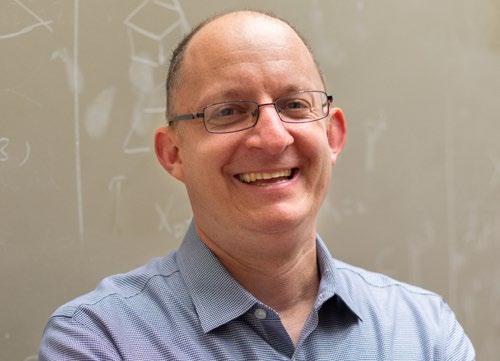
Izzet Coskun, LAS Distinguished Professor of Mathematics, Statistics, and Computer Science, is one of three LAS mathematicians to receive the Simons Foundation Travel Support for Mathematicians Award for his project, “The Geometry of Moduli Spaces of Sheaves.” The award provides $42,000 to stimulate collaboration in the field of mathematics. Dr. Coskun will visit and host visitors from Brown University, UC Berkeley, Penn State and the Technion to further ongoing collaborations.
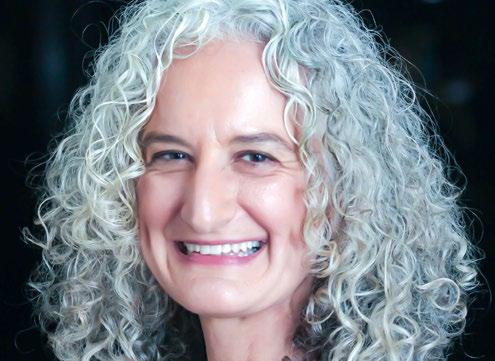
Molly Doane, Associate Professor of Anthropology, has received $18,265 from the Field Museum in support of her project, “Climate Action and Community-Based Conservation in Chicago.” The project focuses on refugee and immigrant community gardens and urban farms in underserved northside neighborhoods of Chicago to explore how people cope with climate crisis, biodiversity loss, and displacement through working in and with nature.


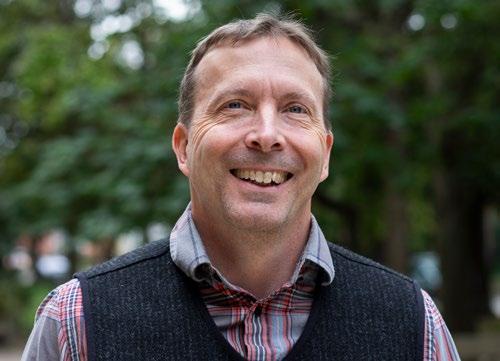
Andrew Dombard, Professor of Earth and Environmental Sciences, received a $35,579 grant from the Mentorship in the NASA-Europa ICONS Program for the project “Assessing Global Magnitudes of Gravity Anomalies from the Seafloor of Europa.” Sponsored by NASA’s Jet Propulsion Laboratory, the ICONS program brings members of the Europa Clipper science team together with undergraduate interns to help advance the mission to explore Jupiter’s icy moon. Dr. Dombard and his intern determined the effective resolution of the expected gravity maps, setting the stage for exploration of the seafloor when the Clipper arrives at Europa in the 2030s.

Philip Engel, Assistant Professor of Mathematics, Statistics, and Computer Science, has been awarded $415,000 from the prestigious National Science Foundation CAREER program, which provides five years of support for exceptionally promising early career researchers who serve as role models in the integration of research and teaching. Dr. Engel’s project, “Hodge Theory of Calabi-Yau Varieties,” lies in an important branch of mathematics that studies the non-linear geometry of shapes using linear invariants. The research agenda will advance understanding of a class of complex projective manifolds that can appear as the small dimensions of the universe in string theory.
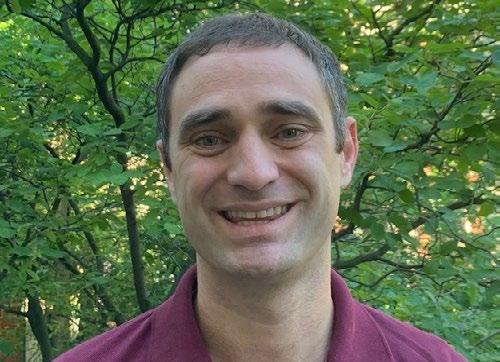
Benjamin Feigenberg, Professor of Economics, has received $139,064 from the William T. Grant Foundation for his work on the collaborative project, “Transformative Justice in Schools: Unraveling the Impacts of Restorative Practices on Youth Outcomes and Inequality.” This research, which continues a long-standing partnership with economist Anjali Adukia at the University of Chicago, explores multiple aspects of school disciplinary policies and has previously been funded by Arnold Ventures. The present project examines whether and how restorative justice practices reduce racial inequalities in graduation, criminal justice system involvement, and post-secondary outcomes.
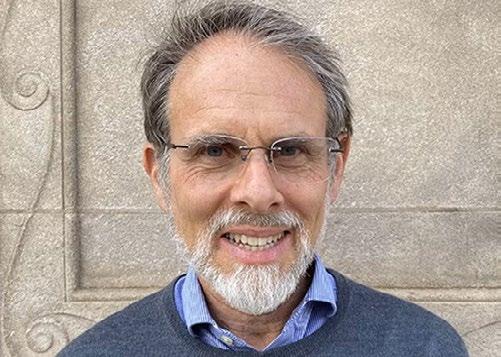
Samuel Fleischacker, LAS Distinguished Professor of Philosophy, has been named a Laurance S. Rockefeller Visiting Fellow at the Princeton University Center for Human Values. The fellowship provides $100,000 for scholars across the humanities and social sciences to spend the academic year at the center while conducting their own research and writing. Dr. Fleischacker will use this time to work on a book project that aims to interpret the vision of the good life in Judaism by exploring an ethical framework for understanding halakha –the Jewish law central to most forms of Judaism.
GRANTS & FELLOWSHIPS (CONTINUED)
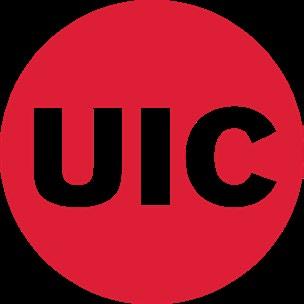
James Freitag, Professor of Mathematics, Statistics, and Computer Science, received $119,999 from the National Science Foundation for his project “Applications of Model Theory.” Model theory is a part of mathematical logic with extensive applications in other areas of mathematics and computer science. This project centers around three main projects involving model theory. The first will advance new methods for resolving long-standing open problems for algebraic differential equations. The second aims to develop connections between model theory and machine learning on both a theoretical and practical level. The third applies the lessons learned from machine learning and difference equations in more general model theoretic settings. These adaptations are expected to lead to fundamental new advances in model theory.
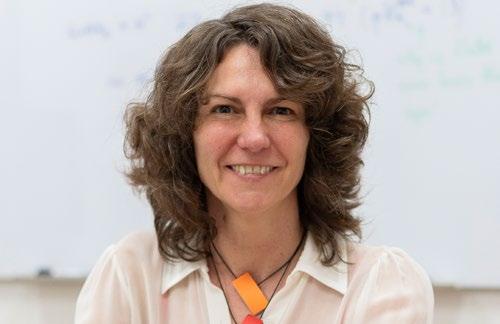
Ksenija Glusac, Professor of Chemistry, received $274,215 from Argonne National Laboratory to lead the UIC research on “Photocarboxylation: From Captured CO2 to Value-added Chemicals.” This work is part of the collaborative work on carbon capture at ANL funded by the Department of Energy. The project studies combined CO2 capture/conversion chemistry that enables photocarboxylation of alkynes, alkenes and halides to generate important polymer precursors and value-added chemicals, such as acrylic and adipic acids. Combining directair carbon dioxide capture with its conversion to value-added chemicals using renewable solar energy is a promising approach toward efficient and carbon-negative upcycling of carbon dioxide.

Daniel Groves, Professor of Mathematics, Statistics, and Computer Science, was awarded $200,000 from the National Science Foundation for his work on “Mesoscopic Topology in Geometric Group Theory.” The research consists of three major projects centered around approaches to proving the Cannon Conjecture, and related Conjectures, which constitutes one of the central problems in geometric group theory.
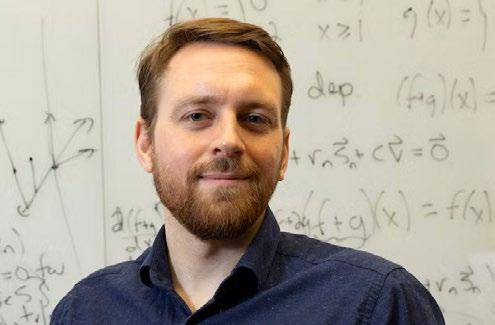
Matthew Harrison-Trainor, Assistant Professor of Mathematics, Statistics, and Computer Science, has been awarded $109,999 from the National Science Foundation for his project “Scott Analysis of Discrete and Continuous Structures.” Combining ideas from different areas of mathematical logic, from computability theory, descriptive set theory, and infinitary model theory, the Scott analysis is a way of measuring and understanding the complexity of mathematical objects that has been well-developed for the case of discrete structures such as those appearing in algebra. Dr. Harrison-Trainor’s work will develop the application of Scott analysis to continuous structures to contribute to a more rigorous and formal understanding of why certain mathematical questions are difficult or even impossible to solve, and what the barriers are to solving them.
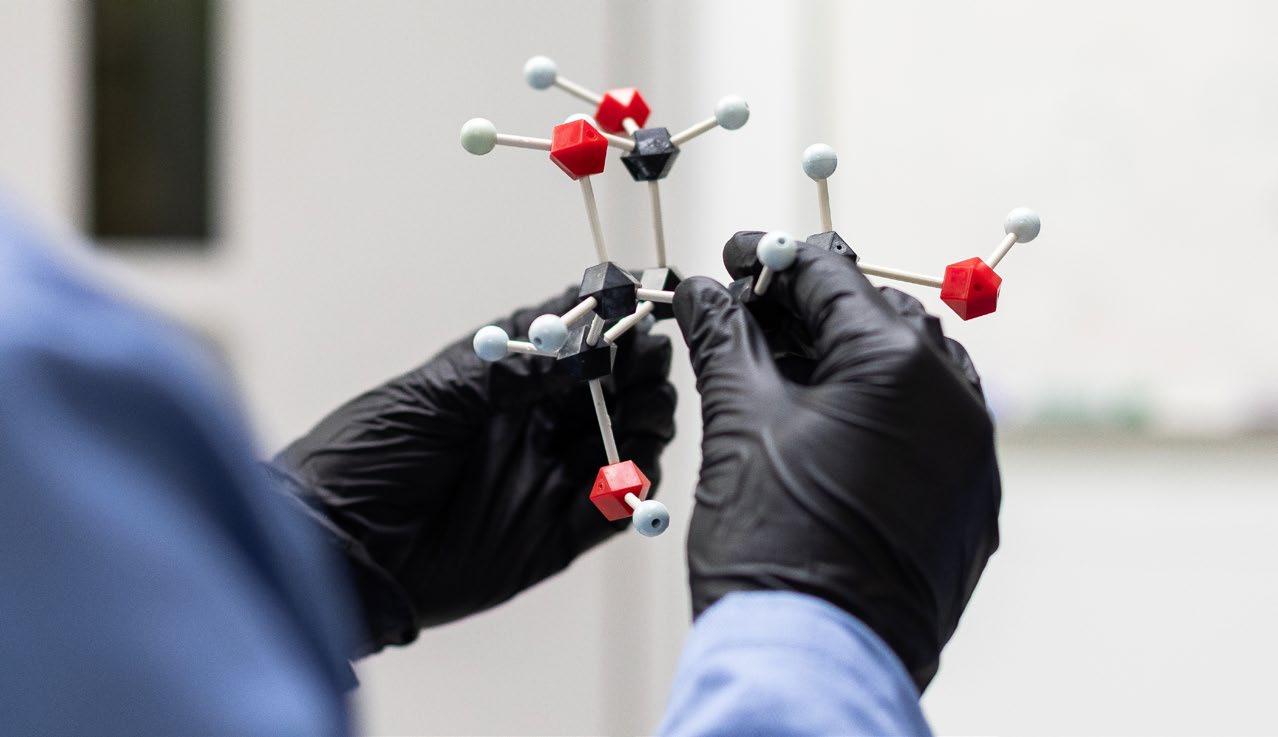
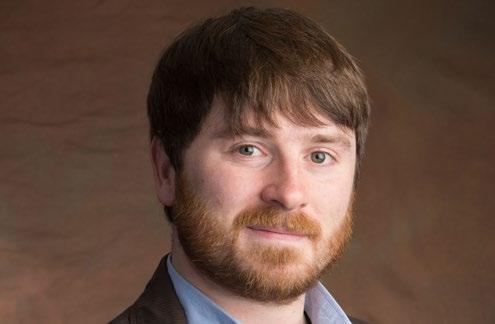
Kasey Henricks, Assistant Professor of Criminology, Law, and Justice, has received a Digital Justice Development grant of $99,552 from the American Council of Learned Societies for his project “Under False Pretenses: The Inequities of Tickets Issued in Error.” The work builds on an earlier review of nearly 3.6 million parking tickets between 2012 and 2018 in Chicago, which found that more than one in eight tickets were issued when restrictions did not apply. Although these tickets impact virtually everyone, erroneous tickets devastate the already disadvantaged, resulting in bankruptcies that disproportionately impact Black and Latinx drivers. The present project will expand the dataset to 2024 and create an online platform to translate the results to broader audiences, disseminate actionable curriculum, and deliver resources to those impacted.

Neal Mankad, Professor of Chemistry, was awarded $388,983 from the National Science Foundation for the project “Spatially Mapping Electronic Structures of Atomically Precise Copper Nanoclusters Using Advanced Crystallography.” Situated at the intersection of physical, inorganic, and materials chemistry, this work investigates small, well-defined clusters of copper atoms that can help scientists better understand nano-catalysts – materials that play vital roles in speeding up chemical reactions but are often difficult to study because their structures are not well understood. The project uses advanced X-ray techniques to map where electrons are located within these copper clusters, revealing how the arrangement of atoms affects their chemical behavior and providing valuable insights that can help design better catalysts.
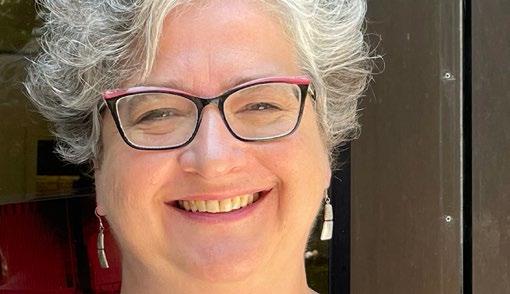
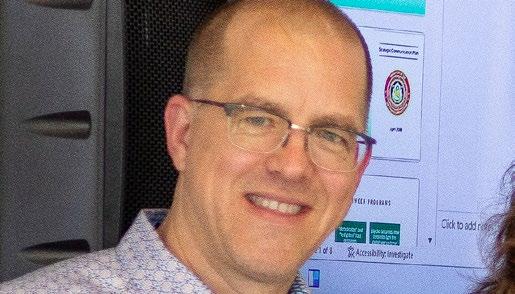
Ellen McClure, Professor of French and Francophone Studies and Director of the Institute for the Humanities, is the PI of the project “Carceral Liberalism in an Age of Fascism,” which was selected to participate in the Consortium of Humanities Centers and Institutes’ (CHCI’s) Global Justice and Humanities Practices Initiative. The selection entails a $10,000 grant for the project and supplemental funding to attend the CHCI annual meeting in Berlin.
Andy Clarno, Associate Professor of Black Studies and Sociology, is the faculty lead on the year-long project along with Korey Tillman, Assistant Professor of Criminology and Criminal Justice and Africana Studies at Northeastern University. The project will host a workshop in Fall 2025 at NEU in which Professor Clarno will give a talk on his new book, ImperialPolicing:WeaponizedDatainCarceral Chicago. In Spring 2026, the project will culminate in a two-day symposium held at the Institute for the Humanities.
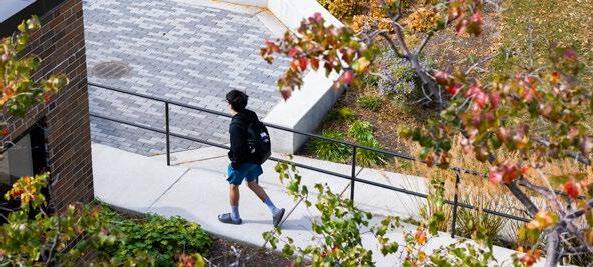

Zachary McDowell, Associate Professor of Communication, received a $14,300 grant from the Wikimedia Foundation for “Establishing a Critical Digital Commons Research Network.” The project will bring together researchers to investigate the digital commons and its connections from the perspective of infrastructural, political-economic, policy, and other critical approaches. This network will examine the role, importance, and impact of different aspects and areas of the digital commons, particularly Wikimedia projects, and foster relationships and mentorships for researchers in this area.

Corrinne Mills, Associate Professor of Physics, together with co-PIs Mark Adams, Emeritus Professor of Physics; Richard Cavanaugh, Professor of Physics; and Cecilia Gerber, UIC Distinguished Professor of Physics, have received $405,908 from the National Science Foundation for their project, “Bridge to the HL-LHC: CMS Upgrades and Run 3 Physics.” The award provides support for the long-standing and on-going work of the UIC group’s high-energy physics program on the CMS experiment at the Large Hadron Collider (LHC) at CERN, a particle physics laboratory in Geneva, Switzerland. The program balances measurements scrutinizing known particles such as the top quark and the Higgs boson with direct searches for well-motivated new particles that address profound questions about the fundamental workings of the universe. Motivating questions include how the universe survived the Big Bang and the role of symmetries (and symmetry breaking) in nature. The CMS collaboration, of which this latest funded project is a part, was just awarded the Breakthrough Prize in Physics (see above).
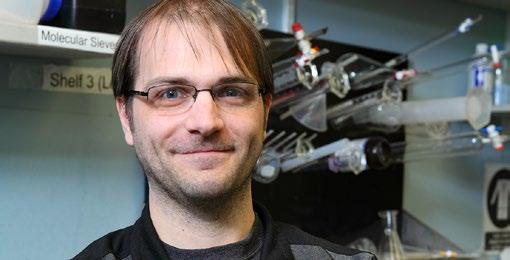
Justin Mohr, Associate Professor of Chemistry, was awarded $550,692 from the National Science Foundation for his project, “New Synthetic Opportunities with N-Alkenylnitrones and N,O-Dialkenylhydroxylamines.” The work will contribute to improving efficiency to enable rapid access to new molecular targets and expanding chemical space to include new molecular architectures, which remain two critical needs in organic synthesis to support demands for new compounds with novel properties for medicinal and material applications.
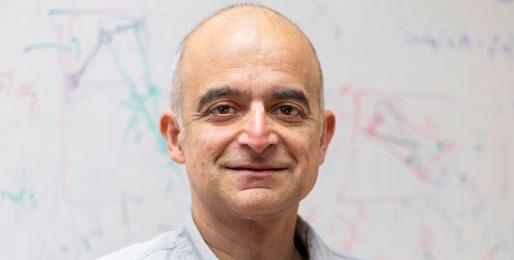
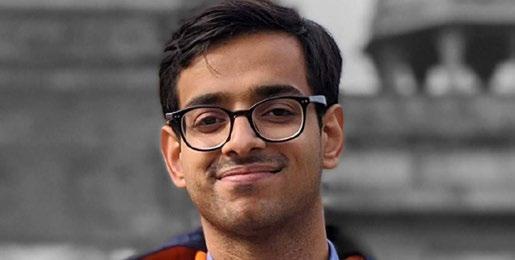
Dhruv Mubayi, Professor of Mathematics, Statistics, and Computer Science, together with co-PIs Vishesh Jain, Associate Professor of Mathematics, Statistics, and Computer Science and Marcus Michelen (Assistant Professor of Mathematics at Northwestern Univ.), received $30,000 from the National Science Foundation to convene the conference “10th Lake Michigan Workshop on Combinatorics and Graph Theory” in April 2025. Combinatorics and graph theory are two very active areas of research within the broader field of discrete mathematics, with important ties to disciplines such as statistical physics, probability theory, and computer science. There are a large number of researchers and students working on a variety of graph theoretical and combinatorial problems in the immediate vicinity of Lake Michigan. This workshop brought many of them together at UIC for tutorial lectures, short talks, and informal collaboration time.
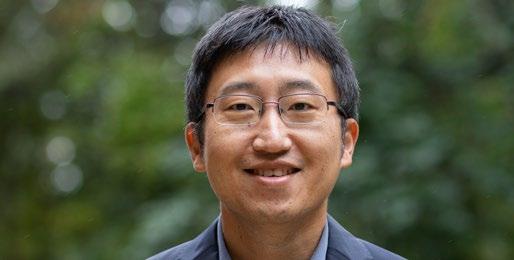
Hyowon Park, Associate Professor of Physics, has been awarded $322,944 from the National Science Foundation for the UIC portion of the collaborative project “Towards Accurate Magnetic Simulations: A Comprehensive Framework for Strongly Correlated Systems.” Dr. Park is the lead PI of the award and is partnering with scientists at West Virginia University to develop an open-source computational platform to study the magnetic and electronic properties of strongly correlated materials (SCMs), which are essential for emerging technologies and devices related to quantum computing, spintronics, and magnetic storage. SCMs exhibit complex behaviors that are difficult to capture through conventional static theories or based on pure experimental measurements. By incorporating dynamical fluctuation effects into conventional first-principles methods, this project offers a new way to accurately simulate magnetic phenomena at multiple scales, from atomic spins to macroscopic magnetism.
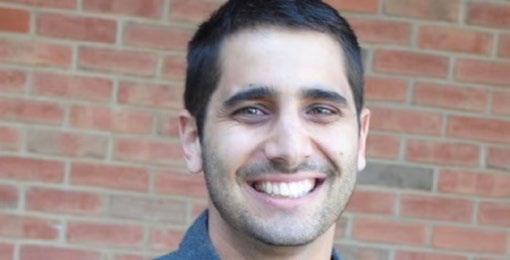
Michael Pasek, Assistant Professor of Psychology, has been awarded a $656,926 grant from the John Templeton Foundation for the project, “Allowance for Religious Deviation: How People Draw and Strategically Manage Fluid Religious Group Boundaries in a Changing World.” Some religious communities allow for a wide range of beliefs and practices within their group, while others draw strict boundaries to disqualify those who deviate from core beliefs and practices from membership. This project examines such differences in the “allowance for religious variation” and proposes that people shift their degree of allowance in response to trends like globalization, disaffiliation, and competition, which can threaten the size and traditions of religious groups. The project will develop measures of the allowance for religious deviation, map its correlates, and experimentally test whether people strategically adjust their allowances in the face of different threats in order to provide a novel framework for studying a dimension of religious change that has yet to be systematically studied.

Mitchell Roitman, Professor of Psychology, has received $627,918 from the Novo Nordisk Foundation for the project “Novel Targets for the Treatment of Obesity and Their Effects on the Mesolimbic Dopamine System.” The tastes of high-fat, high-sugar foods – as well as their sights, smells and advertisements (i.e. food cues) – recruit the brain’s reward systems, which contributes to overconsumption. Dr. Roitman will partner with the Foundation to investigate whether and how these reward systems are affected by the novel approaches to the treatment of overweight and obesity that are the subject of the study.
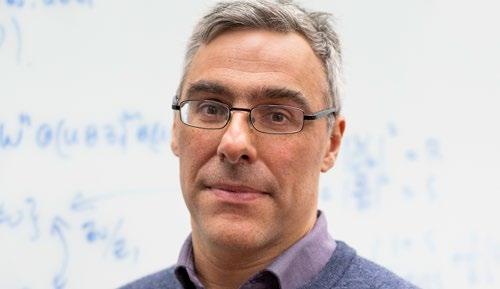
Julius Ross, Professor and Department Head of Mathematics, Statistics, and Computer Science, is one of three LAS mathematicians to receive the Simons Foundation Travel Support for Mathematicians Award, which provides $42,000 to stimulate collaboration in the field of mathematics. The award will support Dr. Ross’ work on Hodge-Riemann relations, Schur Polynomials and Generalized Convexity and enable him to travel to universities in France, Germany, Romania, and Sweden, as well as Rutgers University in the US, to pursue collaborations relating to generalized BrunnMinkowski and F-subharmonicity, dually Lorentzian polynomials, moduli spaces of sheaves, and K-stability and foliations.

Frederick Saia, Research Assistant Professor of Mathematics, Statistics, and Computer Science, received $6,000 from the American Mathematical Society (AMS) through the AMS-Simons Travel Grant program, which provides early-career mathematicians with funding for two years of research-related travel to pursue collaborative work. Dr. Saia will spend three weeks at the Max Planck institute in Bonn, Germany and attend the Arizona Winter School in Arithmetic Geometry, among other activities.
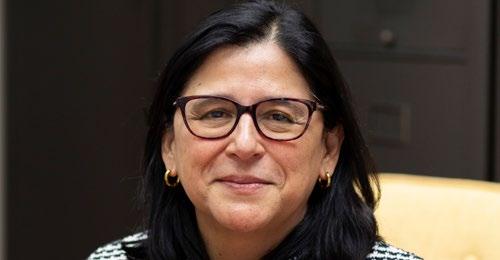
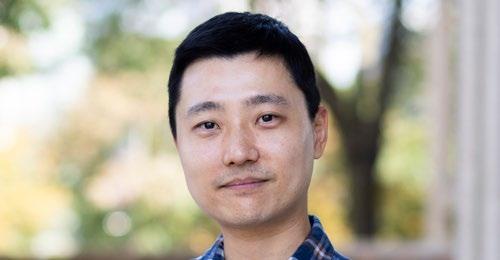
Liliana Sanchez, Professor of Hispanic and Italian Studies, received $240,470 from the National Science Foundation to lead the UIC efforts on the collaborative project, “Advancing Open-Access Resources for Under-Represented Languages: Evidentiality and Focus Features in Quechua and Shipibo.”
Gyu-Ho Shin, Assistant Professor of Linguistics, is co-PI on the UIC award. A collaboration with Central Connecticut State University and several Indigenous communities in Peru, the research investigates evidential markers – the grammaticalcoding of information source and speaker’s perspectives – in two indigenous languages of South America to provide insights into how speakers evaluate information, revealing deeper cognitive processes. The project will create treebanks/ universal dependencies corpora to develop an automated deep-learning natural language processing (NLP) model.
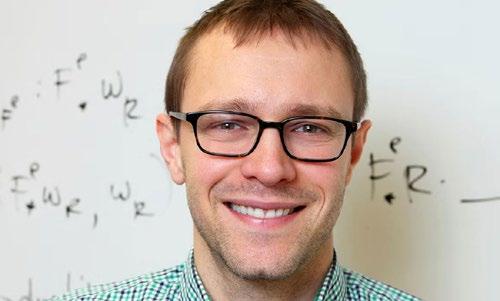
Kevin Tucker, Professor of Mathematics, Statistics, and Computer Science, has been awarded $109,999 from the National Science Foundation to lead the UIC work on the collaborative project, “Bridging Singularities in Algebra and Geometry across Characteristics.” In partnership with the University of Utah, the research focuses on points where the geometric objects behave irregularly (for example, a curve crossing over itself), using techniques from modular arithmetic (also known as clock arithmetic or prime characteristic algebra) and mixed characteristic settings (where a prime is treated as a variable). These approaches, including the use of perfectoid algebras, help bridge distinct mathematical worlds and enhance our understanding of both. Dr. Tucker is also one of three LAS mathematicians to receive the Simons Foundation Travel Support for Mathematicians Award, which provides $42,000 to stimulate collaboration in the field of mathematics. Additionally, he was the co-organizer of the “Singularities in Algebra and Geometry” conference held in June 2025 in Mexico and received a $20,000 conference grant from the National Science Foundation to support the participation of US-based graduate students and postdoctoral researchers.

Luke Hanley, LAS Distinguished Professor of Chemistry, received an additional $40,000 from Argonne National Laboratory to extend his subcontract titled “Mass Spectrometry Imaging of Polymer-Based Composite Electrolytes.” This will extend his student’s use of timeof-flight secondary ion mass spectrometry and other methods in mass spectrometry imaging to understand the solid-electrolyte interphase in lithium-ion batteries, part of a larger effort to understand how the internal chemistry of such batteries affects their long-term performance.
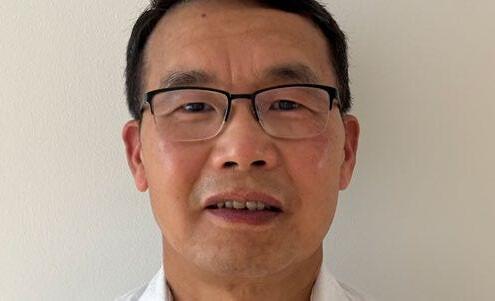
Huan-Xiang Zhou, Professor of Chemistry and Physics and LAS Endowed Chair in the Natural Sciences, will receive $1,019,365 from the National Institutes of Health to participate in a project led by Florida State University titled “Membrane Protein Complexes in the M. Tuberculosis Divisome: Structures and Interactions.” Drug-resistant mycobacterium tuberculosis is the most infectious bacterium to date. The proposed work lays the foundation for designing resistance-breaking therapeutics through structural characterizations and functional studies of key protein complexes involved in cell division. Dr. Zhou will be responsible for the computational side of the project.




A RESESARCH HOMECOMING
UIC psychologist and Assistant Professor Josefina Bañales returns to her Chicago roots with a prestigious National Academy of Education Spencer Postdoctoral Fellowship to Advance Racial Justice for Latinx Teens.
For Josefina Bañales, being named a 2025 National Academy of Education (NAEd) Spencer Postdoctoral Fellow is more than a professional milestone — it’s personal.
“It’s truly a dream come true,” said Bañales, assistant professor of psychology in the College of Liberal Arts and Sciences. “This fellowship gives me a year to focus on the research I’ve envisioned since college, work that supports the racial justice development of Latinx teens.”
The fellowship provides Bañales with a $70,000 award for critical resources to collaborate with Chicago Public Schools and community partners — and to fairly compensate the teens and families who share their time and experiences.
“Research should be collaborative,” she said. “This fellowship makes it possible to honor those contributions.”
Her current project, based at a partner high school on Chicago’s South Side, begins with surveys to explore how Latino students view their identities and their ability to address social issues. The results will guide interviews and youth-led interpretation of the data, ultimately shaping Roots y Resistencia, a program designed to support Latinx teens in engaging with activism.
“Teens aren’t just participants — they’re collaborators. They’re on the research team helping us make sense of the data.”
That model is already showing results.
Three youth collaborators Bañales hired two years ago are now UIC undergraduates — and still part of the team. “It’s hands-on experience for them, and it strengthens our work,” she said.
Her approach blends surveys and interviews with youth participatory action research, which centers around young people’s perspectives. “As adult researchers, we bring expertise, but community members — especially teens — bring their own essential knowledge,” she explained.
For Bañales, the work is deeply tied to her own story. She grew up in Brighton Park and once commuted four hours daily to Lincoln Park High School, passing UIC each way. As a first-generation high school graduate, college student, and PhD, the institution felt inaccessible for complex reasons.
“Being here is an incredible privilege. It’s really a homecoming. I want young people in Chicago to see UIC as a place where they belong.”
That mission extends to her own family. Alongside her brother who is a UIC School of Social Work alum, they routinely bring her niece and nephew to campus, whether to study in BSB or work out at the UIC gym. “It’s important for kids of color to see themselves here,” she said. “Being a Latina faculty member from Chicago, I want my students to see that this is possible.”
Reflecting on her path, Bañales said the fellowship is about advancing her research and amplifying its reach.

“
We have the power and responsibility in higher ed to spread opportunities beyond campus. UIC should never feel out of reach.”

INTERNAL HONORS & AWARDS
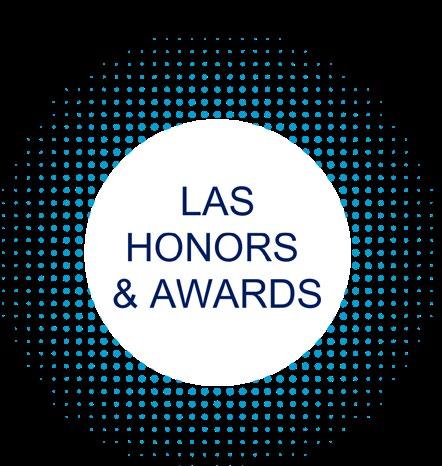

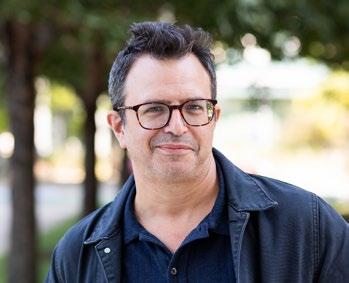
Daniel Borzutzky, Associate Professor of English and Latin American and Latino Studies, was named an LAS Distinguished Professor this Fall for his accomplishments in research and teaching. His Distinguished Professor lecture and reception was held on October 21, 2025.
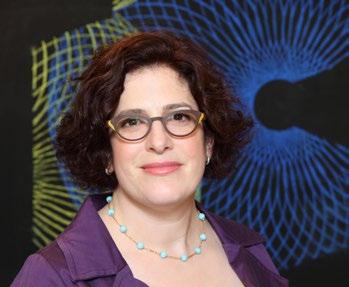
Jennifer Brier, Professor of History and Gender and Women’s Studies, was named an LAS Distinguished Professor this Spring for her accomplishments in research and teaching. Her Distinguished Professor lecture and reception will be held on March 4, 2026.
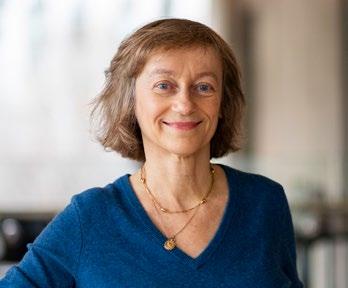
Chiara Fabbian, Clinical Professor and Director of the Italian Language Program, Department of Hispanic and Italian Studies, received a 2025 LAS Service Award for exceptional service to the College.

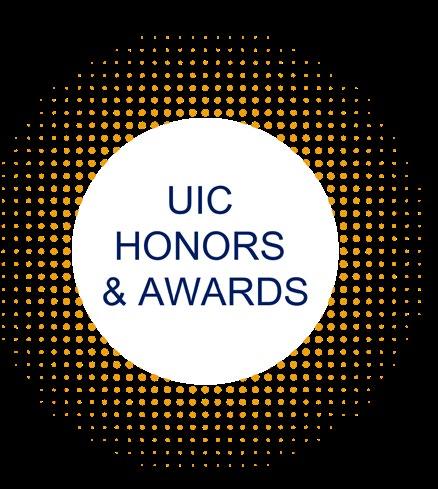

Oliver Keyhani, LAS Distinguished Chair in the Natural Sciences and Professor of Biological Sciences, received a 2025 Chancellor’s Translational Research Initiative Award for his project, “Discovery of a new antibiotic from ambrosia beetle fungi.” The CTRI program provides up to $25,000 in funding to advance early-stage translational research projects towards commercialization.

Anna Guevarra, Professor of Global Asian Studies, has been named a 2025-2026 University Scholar. This prestigious award, sponsored by the Office for the Vice Provost for Faculty Affairs, provides $15,000 per year for three years to faculty who have demonstrated research and teaching excellence and who show promise for future achievements.

Ben Ost, Associate Professor of Economics, received a 2026 Award for Excellence in Teaching from the Office of the Vice Provost for Faculty Affairs.
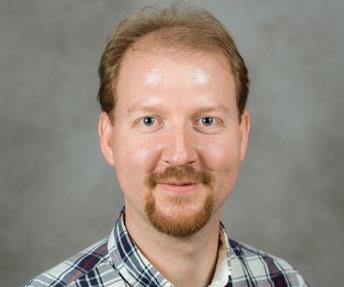
Ryan Hazelton, Clinical Assistant Professor of Physics, was one of three faculty university-wide who won a 2025 Faculty Open Educational Resources Leadership Award, sponsored by the Undergraduate Student Government, for his work revamping the engineering track physics sequence. The honor comes with a $500 award.

Mikhail Stephanov, Professor of Physics, was named a UIC Distinguished Professor. This honor, sponsored by the Office of the Vice Provost for Faculty Affairs, is meant to recruit and recognize faculty who have made a significant impact in their field and comes with a one-time $5,000 award.
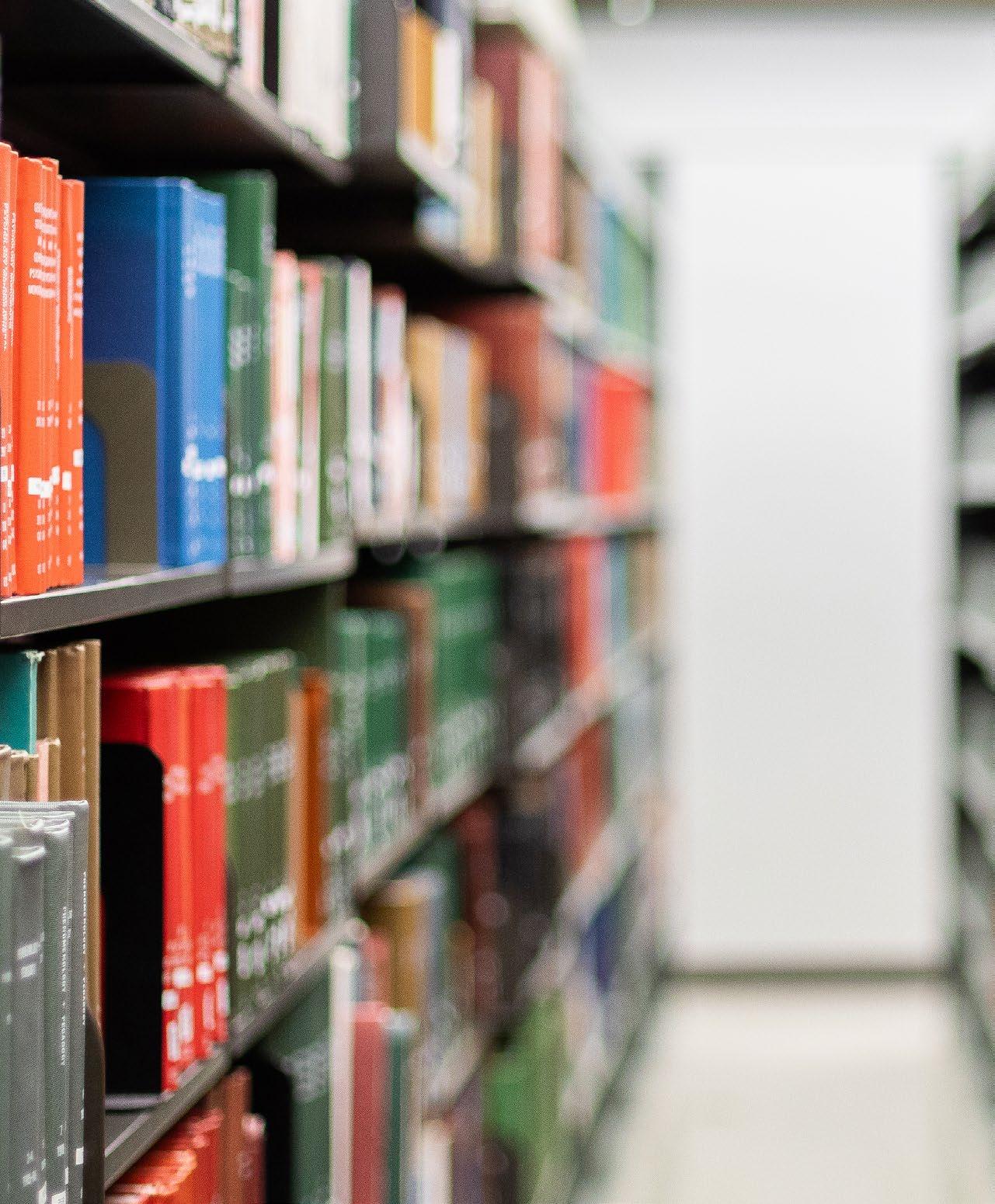
IRRPP FELLOWSHIPS

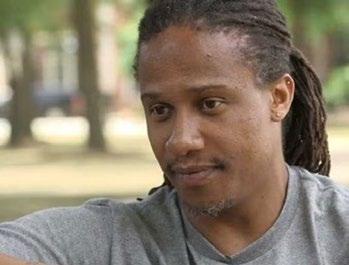
David Stovall, Professor of Criminology, Law, and Justice & Black Studies; and David Crocket, Professor of Marketing (College of Business Administration) SolidarityEconomyReworldingProject CommunityPartner:JusticeCream
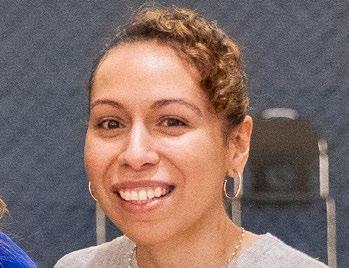
Mayra Guerrero, Assistant Professor of Psychology EmpoweringVoicesandTransforming Systems:ACommunity-Driven,SurvivorCenteredTrainingforEquityandPolicyChange CommunityPartner:SpottedWingsStrategies
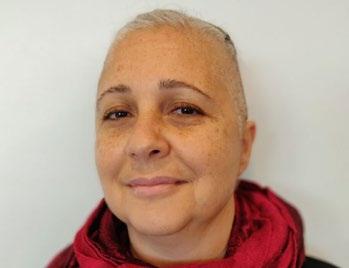
Zeina Zaatari, Director of the Arab American Cultural Center & Adjunct Faculty in the Anthropology Department Qisassna:OurStories,OurStruggle CommunityPartner:ArabAmerican Cultural Center

Michael Jin, Associate Professor of Global Asian Studies & History
SurvivingtheBombinDiaspora:Nuclear ViolenceandJusticeSeekingintheU.S. PacificEmpire

Sigrid Luhr, Assistant Professor of Sociology
EngineeringInequality:Gender,Race,and DivergingCareersintheTechnologyIndustry
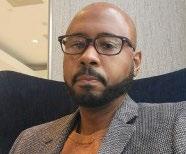
Julian Thompson, Assistant Professor of Criminology, Law, and Justice
CommunityViolenceIntervention: Black Women and the Politics of CommunityCare
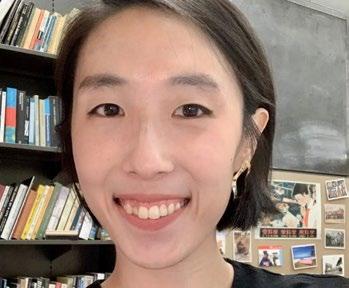
Kim, Assistant Professor of Global Asian Studies & History
UnrulySubjects:Race,Migration,and ComputationinAmerica
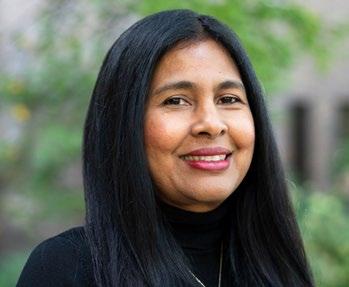
Sharon Meraz, Associate Professor of Communication
WhiteIdentityPoliticsHidinginPlainSight: HowTwitterMainstreamed#maga
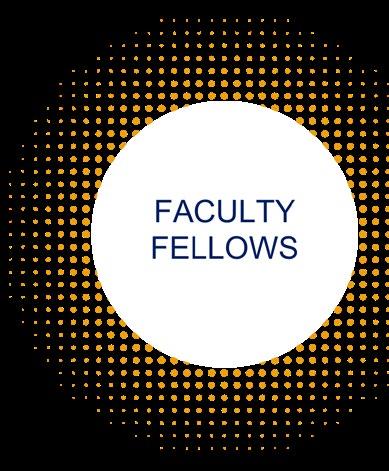


Institute for Research on Race and Public Policy 2025-2026 Faculty Fellows
Clare

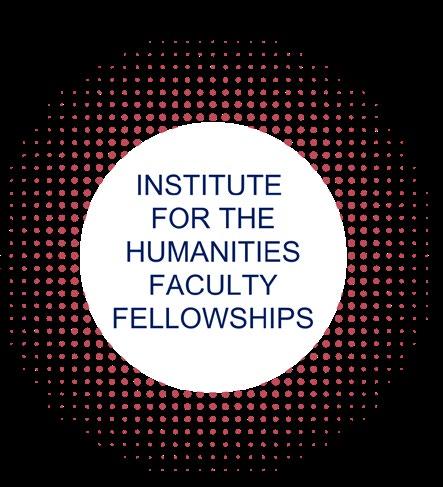

Alvarez Velasco, Assistant Professor of Anthropology and Latin American and Latino Studies
InhabitingtheTransit:MigrantSpatial StrugglesfromGlobalSouthAmerica to the U.S
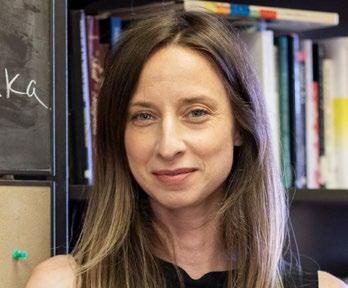
Kaitlin Forcier, Assistant Professor of English The Infinite Aesthetic
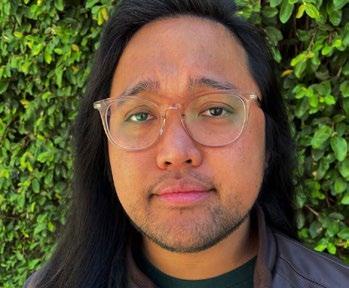
Quang Nguyen Phan, Assistant Professor of Global Asian Studies
EmbodiedNonalignment: VietnameseDiasporicAesthetics and Cold War Mediations
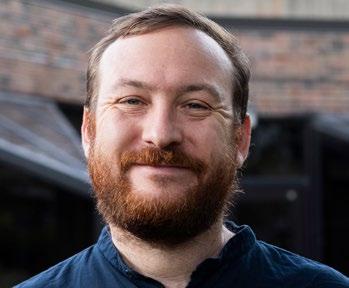
Zachary Davis Cuyler, Assistant Professor of History
FossilLebanon:OilandtheMaking ofthe Lebanese State
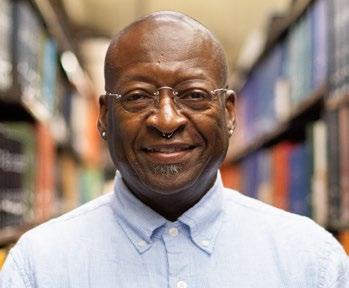
Johari Jabir, Associate Professor of Black Studies
NoWaysTired:TheLifeLegacy andMakingoftheKingofGospel, Rev.James Cleveland

Will Small, Associate Professor of Philosophy SkillasPracticalKnowledge

Institute for the Humanities 2025-2026 Faculty Fellows
Soledad
Justin
LAS FACULTY RESEARCH IN UIC TODAY

“In Africa, heat waves are hotter and longer than 40 years ago, UIC researchers say,” featuring Assistant Professor of Earth and Environmental Sciences Akintomide Afolayan Akinsanola
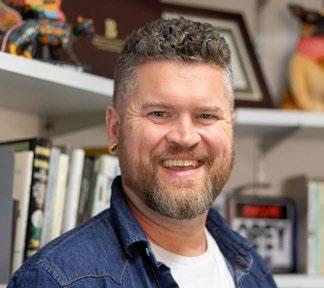
“Q&A on misinformation with Zach McDowell,” featuring Associate Professor of Communication Zachary McDowell

“UIC researchers cast new light on cell structure,” featuring Assistant Professor of Chemistry Ying Hu

“Nanoscale materials ripple in the cold, study finds,” featuring Professor and Head of Physics Robert Klie
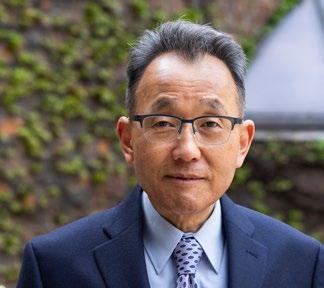
“Colorectal Cancer Treated with Cholesterol Inhibitor in UIC Study” featuring Professor and Head of Chemistry Wonhwa Cho

“Lasso-shaped antibiotic co-developed by UIC evades standard drug resistance”
“UIC Researchers Unravel a Cellular Mystery” featuring Professor of Biological Sciences and Chemistry Yury Polikanov


EVE ALI BOLES
Director of the Office of Social Science Research
Contact for support on humanities and social science grants. eali@uic.edu | ossr.uic.edu

ANNA BRAILOVSKY
Associate Director of Faculty Research Activities
Contact for help crafting a grant narrative and finding funding. abrailov@uic.edu | rd.las.uic.edu
